The Lord of the Tatsutomi mounted his horse, and with trusted generals at his side, rode away from the safety of the temple camp. The thunder of their hoofbeats and war chanting disappeared beneath the hills. In the company of five hundred men, his third and fourth sons faced their duty with all due seriousness, commanding scouts to increase the diligence of their patrols. An hour passed as the rain intensified, with no news.
“What name do you think Father will pick for me?” Kazuchiyo wondered aloud, tightening his gi, trying to make it feel more like armor.
“Part of his own name, of course,” said Tomonaga. “Kazunaga, probably. Mother was always pleased with your name.”
“Tatsutomi Kazunaga,” he said, rolling the name about in his mouth, imagining the brush strokes. He pictured the swoop of water and it reminded him of the soft face of the scout that had come to warn them of betrayal. He glanced about and could not remember what had become of that boy.
A shout arose from the perimeter, and both youths turned toward the tent entrance, breath held. Tomonaga grabbed up his spear, and showing none of his father’s caution, hurried to the enclosure’s entrance. He was greeted there by an arrow carving into his skull.
You mustn’t blame poor Kazuchiyo for his actions then.
His father had warred with the Aritaka since before he was born, and he had for thirteen years been saturated with tales of samurai valor. He had watched the bodies come back on carts, bloated and bloodied, limbs askew or missing. He was no stranger to death. But upon seeing his closest brother stumble back, a shaft of wood piercing just below his right eye, a panic overcame him. Without thought to the cause or retaliation, he caught Tomonaga in his arms. By the time he had lowered him to the ground, his body was limp and the spear tumbling from his hand.
Out from the unceasing rain came their attackers: soldiers in patchwork armor, with patchwork loyalty. They cut down every Tatsutomi in their path with the ferociousness of beasts. A son of the dragon ought to have stepped over his brother’s body, taken up his spear and met his death with courage. But Kazuchiyo knelt in the mud, shocked, Tomonaga twitching and gurgling against his chest.
He would tell me later that he fought. He would have liked for me to tell you that now. But it is my reluctant duty to confess that he did not, and that it would haunt him.
One of the Aritaka struck him across the temple with the blunt of his spear. He should have been prepared after years of his brothers’ training, but the blow crumpled him, robbed him of sight and sense. In breathless darkness he tried to draw himself upright, his only anchor Tomonaga’s wet hissing. Hands grabbed him from all sides, wrenched his arms behind him to be tied. The spots cleared from his vision just in time to watch a sword cleave through his brother’s neck.
“The head should be mine,” said one. “I shot him.”
“Head goes to the general,” said another. “And if you’re lucky, he will reward you for it.”
Kazuchiyo was hauled upright, and on his feet, face to face with the withered, gnarled face of his brother’s killer, some strength came back to him. Too late he struggled, but with arms bound he was an easy target for a fist in his gut. He doubled over, gagging.
“Keep your eye on him,” said the gnarled man, and he took a fistful of Kazuchiyo’s hair as he dragged him from the tent. “Lord Aritaka said to take him alive if we can.”
Kazuchiyo stumbled after. A thousand questions preyed on his tongue but none that would have done him any good to ask. He couldn’t understand how it had happened so quickly, that his father’s most stalwart troops had fallen to lordless mercenaries, who were now shaking his brother’s head to drain it of blood. His stomach crowded against his throat and he wanted to scream, but he could not.
They threw him over the back of a horse, and the gnarled man mounted behind him, taking him again by his hair. As they rode away from the camp, every movement of the animal bore into his stomach and ribs and he nearly vomited. But it was shame more than pain that burned his eyes as he was carried away from the temple, through the sparse forestry of the foothills and down muddied slopes to the field. Even when he tried to struggle, there was nowhere to go.

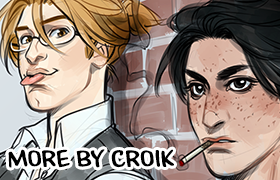
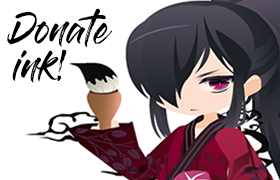
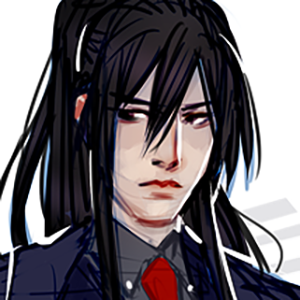
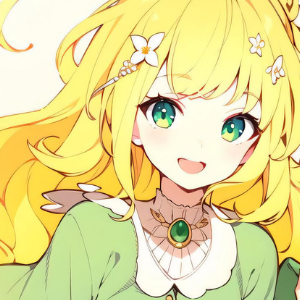







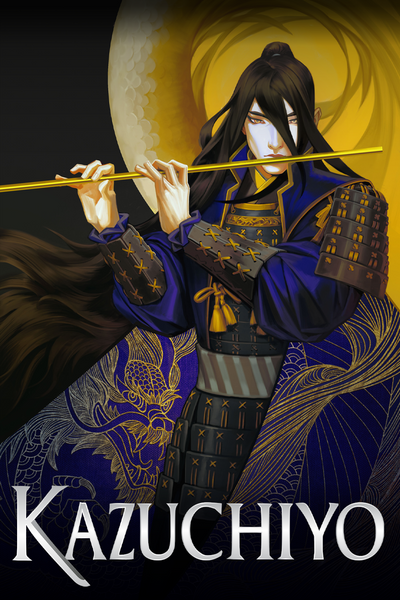
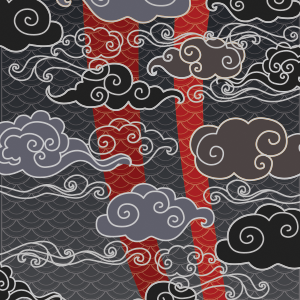
Comments (5)
See all